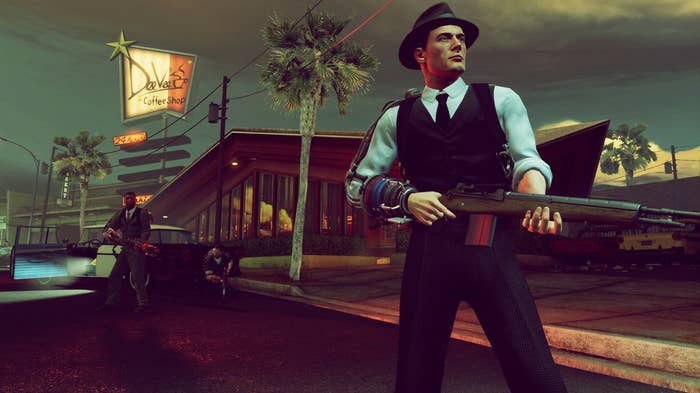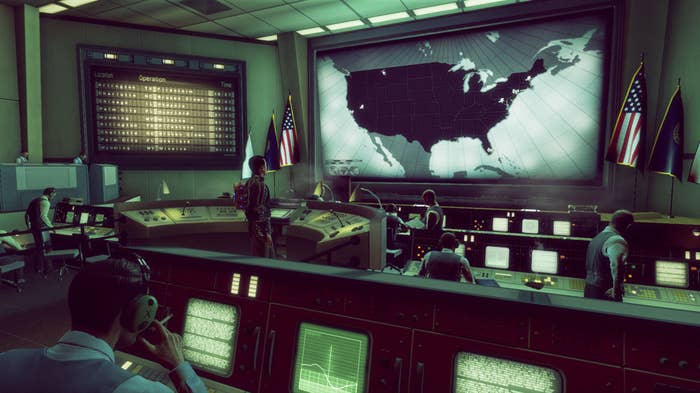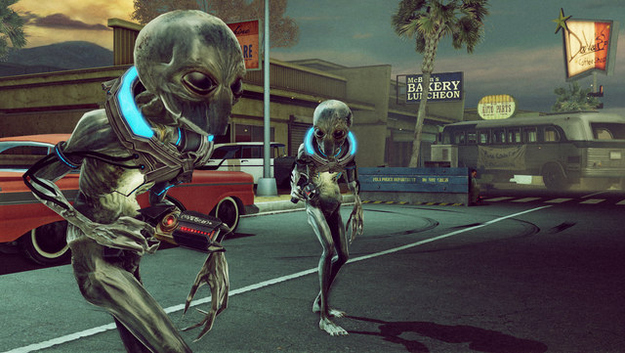
In 1994, the legendary, now-defunct publisher MicroProse released the newest game from Julian and Nick Gollop, British game designer brothers who were known, up until then, for a series of popular but niche strategy titles based on 1970s board games. The new game, X-COM: UFO Defense, had a troubled development, and was briefly cancelled before a surge in interest in UFOs, abetted by The X-Files, brought it back to life.
X-COM went on to sell half a million copies, no small thing for a super-difficult strategy game that cost $180,000 to make, but sales numbers hardly tell the story of the game's influence. In 2007, IGN named it the best PC game of all time, over Half-Life, and Civilization, and, well, every other PC game ever. Why?
...there's still no PC game that can compete with the mighty X-COM. Conceptually it's one of the finest strategy games to ever appear on any system. Putting the player in charge of a worldwide defense against an alien invasion, the original X-COM combined elements of sophisticated base management, high-tech research, engaging roleplaying, thrilling tactical combat and a tense, terrifying story to create an experience that has yet to be duplicated by any other game.
Despite a series of failed attempts to expand the X-COM "IP", the only game to really duplicate the experience of X-COM (and its terrific first sequel, Terror from the Deep), was last year's touchingly devoted reboot, XCOM: Enemy Unknown. Made by Firaxis, Enemy Unkown applied a modern lacquer to what is essentially twenty-year-old gameplay. It worked. Enemy Unknown felt contemporary, urgent even, and it was one of the best games of the year.

With an iOS port of Enemy Unknown, the XCOM brand has probably never been more in vogue or closer to the cultural mainstream, and that's fortuitous for 2K and its upcoming X-COM spinoff, The Bureau: XCOM Declassified. The game, which is a third-person shooter in which you directly control one character and give commands to two omnipresent allies, has had a notoriously tortured, seven-year development. Still, there's the sense that the success of Enemy Unknown has cleared the room for the new game to succeed or fail on its merits.
To get it out of the way: an X-COM third-person shooter is a weird sell. Making an X-COM shooting game seems almost as strange as making a Halo strategy game, or a Super Mario role-playing game. There's nothing to say it won't work, but it's not an obvious move or a sure bet. The very things that make X-COM what it is — groin-twisting tension as you inch forward, unprepared; agonizing over every choice; character customization — are not qualities we associate with cover-based third person shooters.
And yet, the game 2K demonstrated late last month has some real charms. For one, the setting of the game is inspired. The Bureau tells the story of the genesis of the XCOM organization as a Cold War spy shop forced to forestall, and conceal, an alien invasion. Placing XCOM, which has always had a conspiratorial streak, among the bespectacled spooks and paranoiacs of Eisenhower America makes perfect sense. And frankly, sprinting a lithe secret agent clad in his Don Draper best through a body-snatched New Mexico 'burb feels just a little fresher than pushing a BMI-obese space general from chest-high wall to chest-high wall.

And the forty-five minutes of the game I played last made it clear that 2K Marin are genuinely trying to add the first game's thoughtfulness to a genre that sometimes does not think. The game is a shooter, and I spent a lot of time mindlessly jamming on the right trigger button, but it also features an action-freezing assignment wheel, much like the one in the Mass Effect series. In fact, the firefights in this demo played out so much like those in Bioware's crown jewel, that I felt instantly comfortable with The Bureau's, balance between planning and improvisation. (And 2K let slip that the game will feature that beloved XCOM tradition, mind control, and the possibilites of your squad mates turning against you in a third-person shooter (and vice-versa) should add delightful possibilities to the scrambling.)
In other words, it's a totally competent third-person shooter, set in an environment rendered with obvious care, and it has the potential to be excellent. To my mind, a source of perhaps more tension is the fact that this is a narrative game. The story in X-COM games is mostly emergent: that is, people remember great moments that arise out of their unique choices in an economy of scarcity. If you'll pardon the cliche, no two gamers have the same experience. The story in The Bureau is scripted, preordained, meaning it must be judged not just as a companion to Enemy Unknown, but in comparison to the major achievements in scripted game narrative, like Mass Effect and BioShock: Infinite. Ultimately, then, the tougher test for The Bureau may not be whether it lives up to X-COM legacy, but whether it can hold its own among the heavyweights of the genres against which its cerebral predecessors cut such a wonderful contrast. For a series that famously rewards playing the odds, it's a risk.
